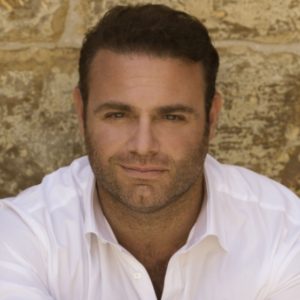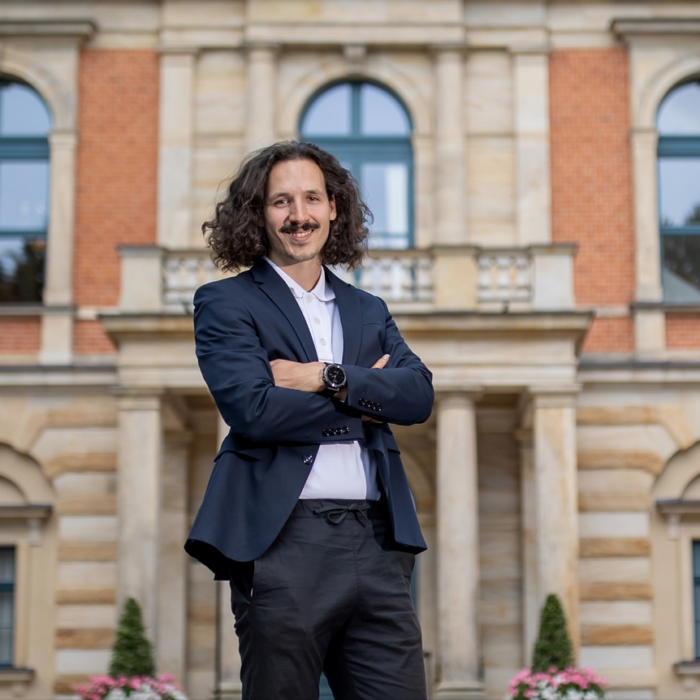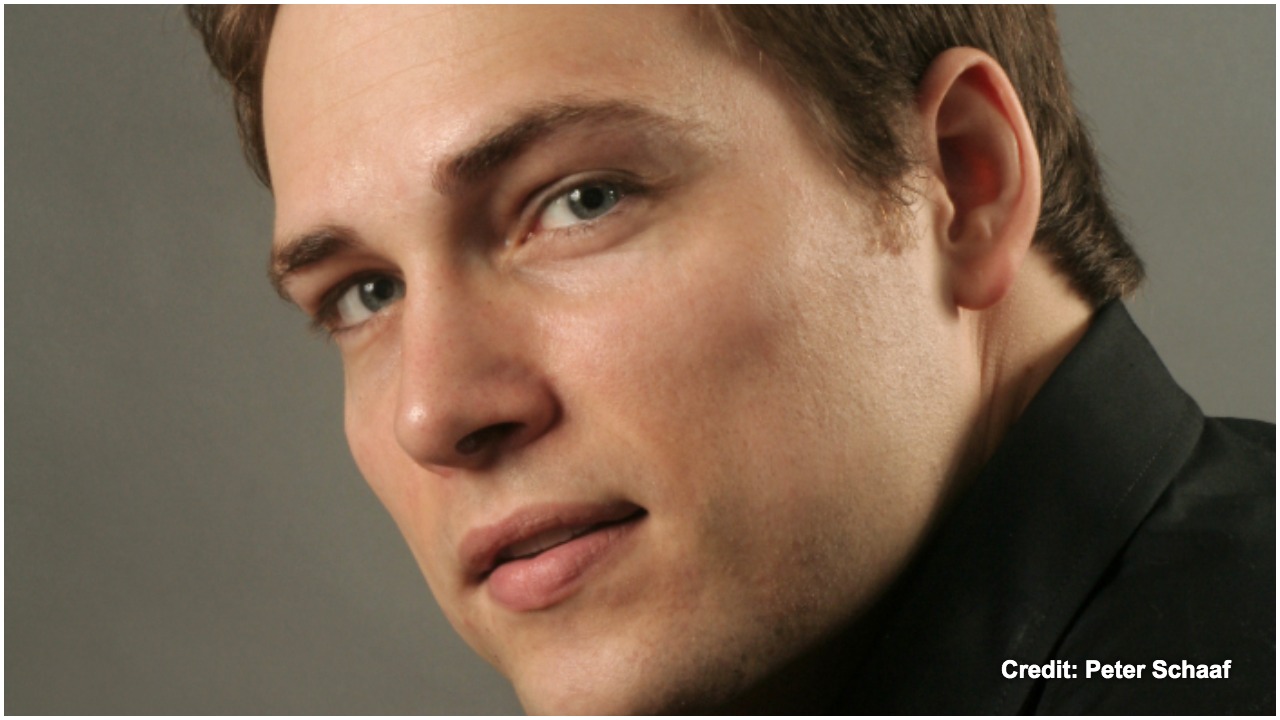
Q & A: Joseph Calleja on ‘Tosca,’ Mario Lanza & the Future of Opera
By Mauricio VillaMaltese tenor Joseph Calleja is considered one of the great voices of his generation. Sometimes noted as the “Golden Voice,” he has gone on to perform diverse repertoire around the world, while recording five solo recital albums, and appearing several HD performances.
Over the past years, he has started to move in the dramatic repertoire and is currently making his house debut at the Teatro Real de Madrid in the role of Cavaradossi this season.
Outside of singing, he has also been active in helping young voices with his two foundations, the Drak Calleja Trust and BOV Joseph Calleja Foundation.
OperaWire had a chance to speak to the tenor about his beginnings, taking on
“Tosca,” his philanthropy, and the future of opera.
Operawire: You started taking singing lessons at quite an early age. Why, despite not coming from an artistic background, did you become interested in singing?
Joseph Calleja: Well, I was born with a voice. At the age of three or four, I was singing everything I heard on TV commercials, choir, and sacred music. They couldn’t shut me up. And then at the age of 13, I saw the movie “The Great Caruso,” and I joined a choir instantly. I even sang in performances of “Rigoletto” when I was 14.
OW: Had your voice changed during this time to be able to sing with a tenor voice?
JC: I never really had a great change from a child’s voice to tenor. For me, the voice changed gradually. I don’t have a particular tenor voice when I speak. I sound almost like a baritone but I had the top register. Then, when I was 16, I met Paul Asciak, who would become my main teacher. I then had my professional debut when I was 19 in “Macbeth.”
OW: That is a very early age to debut. Did you think you were ready? Were you scared?
JC: Here is the thing, everything I did was too early. I went into competitions and won many prizes and I had my contract with the record company DECCA when I was 23. But I was doing ok. I did “La Boheme” quite early in Canada in a theater that holds 4,000 seats, even bigger than the Met. But not a single role that I considered could bring vocal damage. I never had an operation on my vocal cords and I have had a 25-year career. Of course, I have had my ups and downs; great performances, just good and bad performances. And I guess if everyone could go back they would change something. But I wouldn’t change much. I can’t complain, I am living my dream. I still have challenges and roles I want to do. And I am in my prime now. So the trick is to keep on growing artistically in the roles that I am doing.
OW: What roles you would like to sing in the future?
JC: “Aida” for sure, Des Grieux in Massenet’s “Manon,” “Werther,” “Un Ballo in Maschera” and in three years time I have “Parsifal” at Bayreuth. That is a role which I am really looking at, as it could be very interesting to see an Italian style tenor’s voice singing Wagner. I am studying German every day to be able to be as good as possible in the language, and that’s my dream now. I want to continue growing and to continue singing as beautiful for as long as nature lets me.
OW: Tell me about the “obsession” you had with Mario Lanza when you were young?
JC: I fell in love with his voice, like many others. Singers like Luciano Pavarotti and Jose Carreras had been the introduction to opera for many people. Lanza didn’t sing much opera. He sang only once or twice. But in recordings, you can see that he had one of the most beautiful voices. He was the first crossover tenor as well. I think he was the first million-dollar contract if I am not mistaken. So, it’s quite extraordinary. And when Luciano came, he eclipsed everyone. Luciano is probably the greatest phenomenon when it comes to media. But in Lanza’s time, he was as big as Michael Jackson.
OW: You started your career singing high bel canto roles like “I Puritani” and “La Sonnambula.” How did you transition into Verismo?
JC: I never had a voice for “I Puritani.” I could do it when I was younger, but I never did it great. On the other hand, “La Sonnambula” and “Il Barbiere Di Siviglia” worked pretty well for me. But honestly, for those roles, you need voices like Juan Diego Flórez or Javier Camarena, who are very comfortable with the high D and C sharp. Even Luciano said he didn’t have the voice for those roles when he sang them. But those roles gave me a good basis to build and improved roles which would come later.
OW: Most singers say that singing Mozart is like medicine for their voices, Is Bel canto your vocal medicine?
JC: Oh yes, I completely agree and I would like to sing Don Ottavio and Idomeneo, but I just get no offers. They say that my voice is too big. But I think Mozart is medicine for the voice because you have to always be on. It’s a bit like Donizetti and early Verdi. The voice has to always be in the passagio. In Puccini, you can hide a bit. You can see who can and cannot sing in these roles. But they are not as exciting as Puccini. Puccini is like a movie and of course, you have the long lines. But it is really about the whole portrayal. When I sing Puccini, I try to focus on the role, even if I have to sacrifice the vocal line sometimes. You have moments in “e lucevan le stelle” or the duet with the soprano, with long lines and diminuendos. But as a whole, I try to explore the character more. I haven’t been singing Tosca for long and I want to improve my portrayal to convince the audience that I am not singing Cavaradossi but that I am Mario Cavaradossi.
OW: How would you classify your voice?
JC: I would say I am a full lyric. As you said from an early age, I had this baritone quality sound in the middle, but I always had to lighten the sound up, not to lose the top notes. I always had high notes, but there were different qualities in the color. And even today I have to be careful not to give too much to the middle to keep the higher register good. I still have to work on it.
OW: Mario Cavaradossi marks your Teatro Real debut. How has your experience been?
JC: I love Madrid. My ancestors on my father’s side are Spanish. Calleja is one of the oldest names in Malta and we think it came from Jews who escaped from Spain in 1482. I felt home. It’s a dream cast with Sondra Radvanovsky who gave a bis on opening night, Carlos Alvarez, and Nicola Luisotti. Teatro Real is no one of the best opera houses in the world, and the Spanish audience always knows what they like and what they want. So a good success here means something. And you know? I have so much admiration for Spain because they opened the opera houses in June 2020 and never closed. This is admirable, and I feel very humble singing here. As I told Joan Matabosch, the director of the opera house, this theater combines German excellence with Italian warmth and it is a very good place to be. And I love Jamón Iberico and the wine, specially the one from Ribera del Duero.
OW: Can you tell me about your two foundations, “Drake Calleja trust” and “BOV Joseph Calleja foundation”?
JC: It is very simple. In Malta, we raised more than one million euros for young artists and we have so many now. There is a great mezzo-soprano Marvic Monreal that I am sure you will discover soon and Charles Buttigieg, a 21 old baritone. Those are just two examples, but we have stage directors, ballet dancers, singers and we help so many instrumentalists; saxophonists, violinists, and pianists. We are really investing time in this generation. I don’t want one single talent in Malta to get lost because there was no one to push them or no funds for it. Not a single member of the board is getting paid and we throw charity parties to raise our own finances. That’s the foundation.
The “Drake Calleja trust” is thanks to James Drake who gives his own money out and is open to every kind of musician who is studying in the UK. It is really the pleasure of having the power to be able to change someone’s life. It is a gift for me. I don’t even need a thank you because I know that they are doing great thanks to my foundation.
OW: What do you hope for the opera world in the coming season?
JC: Thanks to people like you who write about us, people who buy tickets and come to the theater, people that buy recordings, opera has a future. I insist that people like you who write these articles and interviews have an educational effect and make more opera goers. This is important, and countries should invest more because opera is like a good wine. Wine gets better with time, and with opera, the more you know, the more you can enjoy it. And with wine it is the same; the more you know about grapes, the barrels, the methods of fabrication, the more you can enjoy it. If you know nothing every wine will taste the same. So, your educational action by getting interested in writing about opera, widens people’s knowledge, because without an audience there is no performance.
These people who used to get up early in the morning or go online as soon as bookings are open are the ones who make opera stay alive. So, unless you are sick, you should be nice to the audience, sign programs, take photos, because as I said without a public there is no opera. We must, of course, respect the music and the composer, but after all, we are there to entertain the audience. I get nervous before a performance, but not because I might fail a note or not sing well, but because I might not be able to perform as well as I can. I sometimes leave the theater angry and it stays for days, because I did not perform as well as I could. I am talking about perfection, and I worry about the audience. In a way, it’s like football. Let’s just say that a striker like Ronaldo loses a penalty. We are human after all, but we must give 100 percent to our audience


